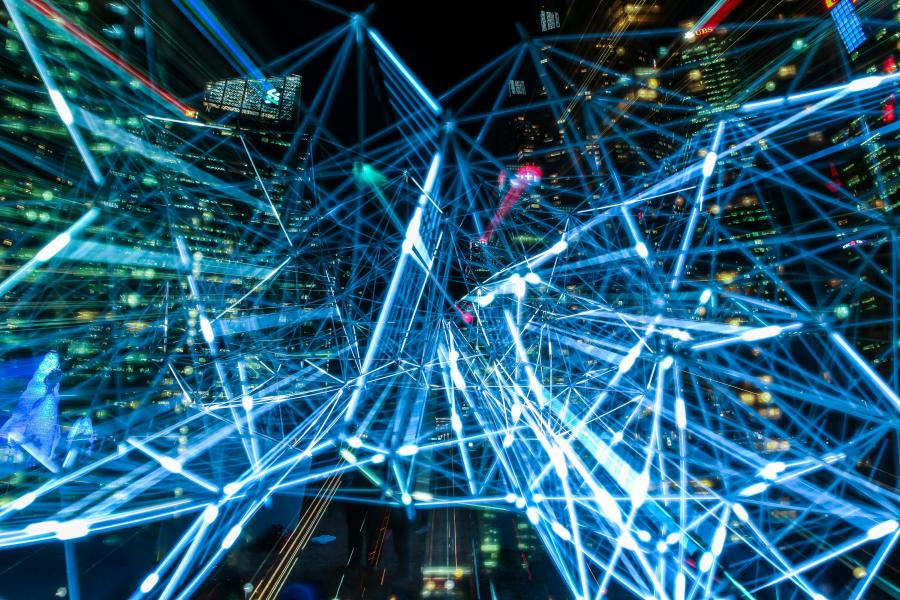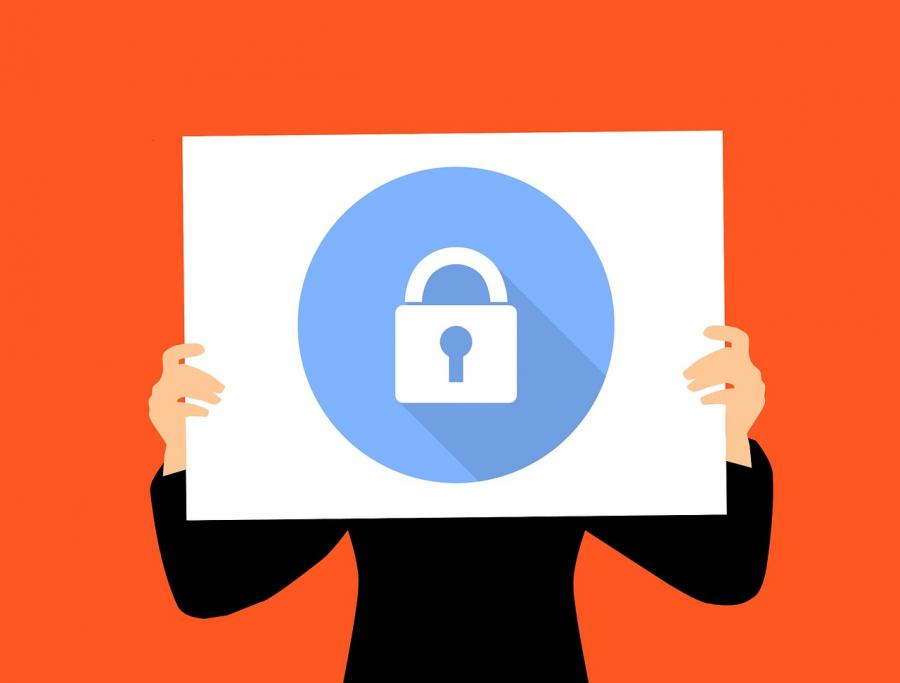
Is Big Data making the world better?
Exploring the challenges and opportunities Big Data has to offer
Big Data is a big quantity of data and it involves all new digital technologies for capturing, storing and analyzing information (Wang T., 2015). It is widely believed that Big Data enables us to more accurately predict the future and leads to more innovation. But are we completely aware of its full potential and possible dangers? Fascinated by this subject, I decided to explore more.
Improving our personal lives with Big Data
In the video with Kenneth Cukier ( published 23/09/2014), who is a journalist and writer of the books Big Data: A Revolution that Will Transform how We Live, Work, and Think, 2013 and Learning with Big Data: The Future of Education, 2014, we can feel his excitement about Big Data and the possibilities it offers. Mr Cukier starts his lecture with stating that Big Data “is a very important tool by which society is going to advance”. But what will these advances look like? In health care, for instance, the data of cancer-patients can be collected, processed and analysed. This will provide doctors with more knowledge about the best possible treatments for each individual patient.
Charlie Stryker in this video is certain that by 2019 there will be no aspect of our lives that is not going to be affected by Big Data, including relationship, leisure time activities, career choices and shopping habits. All the answers to the following questions – How to better invest money? How to find love? Where to find customers? What is the best way to get in touch with friends? – will be provided to us by Big Data. Even our thinking will be influenced by it. For instance, Big Data will be used for better decision-making.
Big Data will affect our relationships, leisure time activities, career choices and shopping habits.
The data about millions of patients with the same disease and its treatments will be kept, processed and analysed to provide the best possible options for each individual patient's case. Another idea about using Big Data concerns the food choices people make and the consequences for their health. Analysing 10-15 years of food consumption will give an insight on the possible causes of a certain disease or any health complications. Even in travel planning it would be possible to use Big Data – giving the system information about the number of people, age, interests and priorities, we can secure ourselves of the best holiday ever. The computer will plan the trip for us and book everything, including tickets, hotels, excursions and taking care of the visa requirements. All these are examples of potential usage of Big Data for society that would make our life easier and much better.

Future of Big Data is now
These prospects sound exciting but what about now? Can we already use Big Data today or, at least, in the near future?
The affirmative answer is found in this video where Prukalpa Sankar, co-founder of SocialCops, a data intelligence company. She is sharing how with the help of Big Data their organization managed to cope with the problem of energy shortages in Indian villages (April, 2017). The difficulty was in the fact that gas centers with gas cylinders for every-day usage were usually very far from the villages where people actually needed them.
Trying to tackle this issue, SocialCops discovered that most of data about the location of the gas centers was totally unstructured. It presented itself in numerous papers, handwritten in a local language. This is a familiar problem in many countries where most data is not digitalized. It means that a very restricted number of people, who know the local language, have access to this information and have the ability to use it.
In the end, this outstanding woman and her team created a system of maps and networks to locate gas centers, and determine what the best possible locations for new gas centers would be. This way, thanks to Big Data, Indian rural people were provided with cheap accessible energy and the quality of their life has considerably improved. This inspiring example shows us that many things which were a painstaking effort before, are possible now and with smart use of Big Data many world problems like hunger or lack of energy sources may be resolved making the life of millions better.
With smart use of Big Data many world problems like hunger or lack of energy sources may be resolved.
Another great example is an initiative launched by American data scientist Dr. Eric Schadt who, together with his team, is developing a new handheld device which can monitor the owner's blood pressure, preventing and detecting serious diseases, giving recommendations on a healthier diet or information about a doctor's consultation. This way the individual would get personalized care, which would benefit both doctors and patients. ‘The role of Big Data in medicine is one where we can build better health profiles and better predictive models around individual patients, so that we can better diagnose and treat disease’, explains Schadt in an interview to McKinsey, a worldwide management consulting firm (November 2015).
The dangers of Big Data
However, one of the major questions concerns privacy issues: will patients give up some privacy for the sake of better health care?This question leads us to a more negative opinion about Big Data phenomenon. Kenneth Cukier warns about several possible dark sides. One of them is predicting policing which would track our web-surfing behaviour. Most of us agree that it is good that police can track potential terrorists and criminals but what about ordinary people? We all have the right to privacy.

Another issue is a threat to professional knowledge work. While a doctor who studied for years at university and possesses years of experience, can remember a limited number of similar cases he has just encountered, the computer has access to millions of them. The value of knowledge gained so meticulously and effortfully vanishes with the rise of Big Data and many jobs may lose their applicability.
There is also the issue of possible misuse of data. Companies like Google and Facebook collect large amounts of personal data. It is unclear how these companies handle all the data they have about us and who actually owns this personal data. Do they have the right to share our personal information? With whom and on what pretext?
Do we as a society really want serious political decisions to be made via social media?
Techno-sociologist Zeynep Tufekci in her open-eyeing talk shares her grave concerns about this issue. She warns that the data such companies as Alibaba, Facebook or Google collect about us can be used not only to sell us goods and services, but also to control our political behavior. Facebook with the help of its algorithms organizes our personal, political and social information flows. Everything we see in our Newsfeed can affect our emotions or even our political behaviour. Antonio Garcia-Martinez states in his article for Wired that Trump won the 2016 elections using masses of engaging and provocative content to trigger social media buzz. He drove more likes, comments and shares on social media than his contender Clinton and as a result, became the American President. This way the like button has turned into ‘a new ballot box’. But do we as a society really want such serious political decisions to be made via social media?
Alternative view on Big Data
Tricia Wang, a prominent tech ethnographer, in her lecture for Re:publica , questions generally shared belief that Big Data is more valuable than qualitative data. She suggests a better alternative. According to her, the notion ‘more Big Data – more predictability’ is dangerous. In her view, relying and trusting solely on computer data is totally wrong. To prove her point of view, she provides the example of her ethnographic research for Nokia in 2009. Her research work proved that poor people wanted to participate in consumer life as well as middle- and high-income consumers. She concluded that to satisfy current market needs, Nokia had to replace their product development strategy to make affordable smartphones for lower-income users. However, the company did not take her research into consideration. Instead, it relied on its huge quantitative data which lacked emotional measurement and it consequently brought Nokia to the undesirable market position it currently has.
Big Data + Thick Data
In the lecturer's view, to have impact the numbers need stories. Wang believes that even from a small sample size we can get an incredible depth of meanings and stories. Big Data, in opposition, needs huge amounts of data to find a pattern. And even if we are able to distinguish a pattern, Big Data will strip it of its context, meaning and stories. The solution she suggests, is to use Big Data coupled with so-called 'Thick Data'. This way both quality and quantity data will be used. The message Wang is trying to put across is that we need to ensure that the data streams coincide with experiences on the ground. The magic is in seeing how all parts fit together.
We have to make sure Big Data supports us in our human goals.
Undoubtedly, Big Data has generated a lot of hype and excitement in the past few years. While many people are still studying it with suspicion and distrust, others are already actively using it to improve other people's lives. Surely, we have to take into consideration everything mentioned above to secure the desired impact: combine the use of Big Data with Thick Data, learn how to handle and secure it best, think of solutions to privacy issues, make sure Big Data supports us in our human goals and much more. When all of these issues are dealt with properly, Big Data can bring noticeable changes to the quality of life for millions of people worldwide. It will just take more time, more care and a deeper understanding.
References
Cukier, K. (2014). Big Data is better data
European Union Charter of Fundamental Rights, Article 8
Garcia Martinez, A. (2018). How Trump conquered Facebook - without Russian ads
Mutsaers, P. (2017). Should Big Data determine who gets pulled over?
Sankar, P. (2017). How Big Data can influence decisions that actually matter
Schadt, E. (2017). How Big Data could transform the health care industry
Schadt, E. (2015). The role of Big Data in medicine
Stryker, C. (2014). Big Data will impact every part of your life
Tufekci, Z. (2017). We're building a dystopia just to make people click on ads.
Wang, T. (2015). How to avoid curses in the era of Big Data